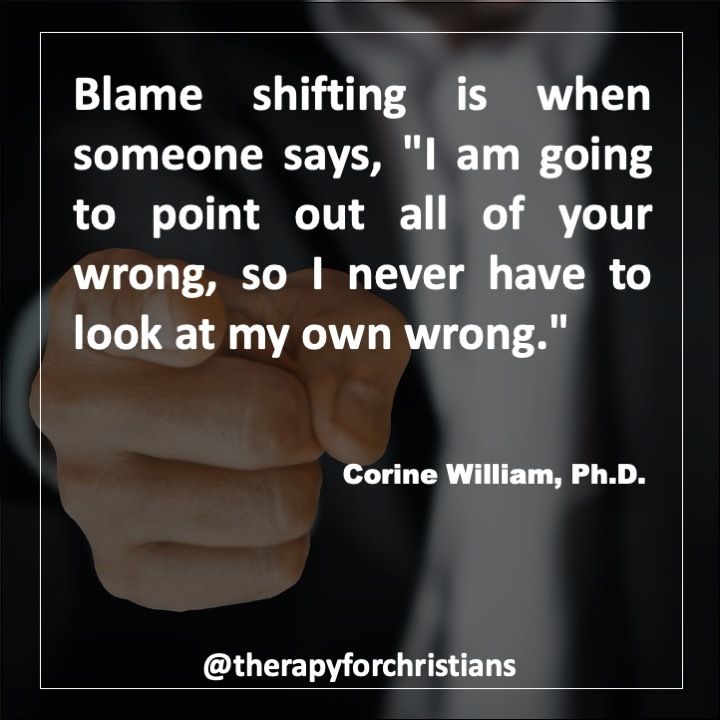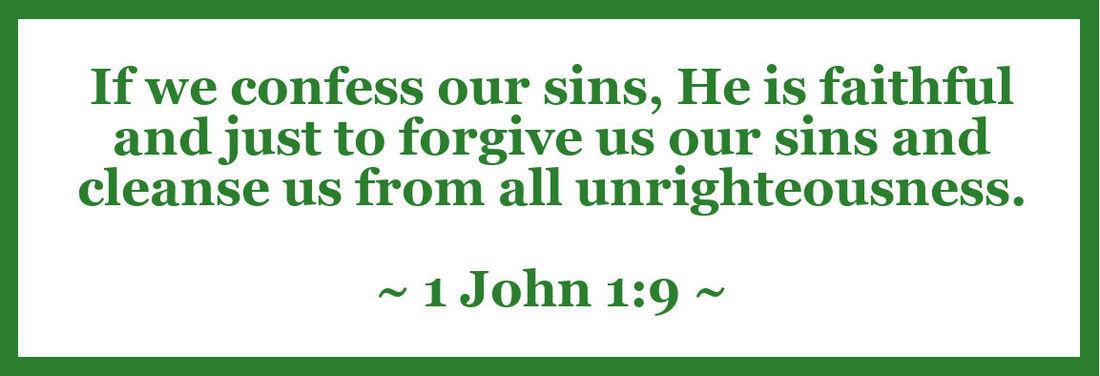
In the timeless story of Adam and Eve, we find a striking example of blame shifting. After succumbing to temptation and eating the forbidden fruit, Adam pointed the finger at Eve, saying, "The woman whom you gave to be with me, she gave me the fruit of the tree, and I ate." This narrative from the Bible highlights a familiar pattern that transcends time—blame shifting.
In this article post, we will explore the dynamics of blame shifting, its implications in our lives, and strategies to recognize and address this behavior effectively. Join us as we delve into the depths of blame shifting and unravel its impact on personal accountability and relationships.
What is Blame Shifting?
Blame shifting (also written as blameshifting) has become another pop psychology term that everyone is talking about but the meaning can be unclear. Even mental health professionals cannot agree on the exact definition of blame shifting.
Blame shifting is a strategy where a person deflects responsibility or accountability for their actions by redirecting blame onto someone else. The individual who engages in blame shifting tries to avoid negative consequences or repercussions by attributing fault to another person, circumstance, or external factor. Blame shifters may use tactics like denial, deflection, minimizing their own role, or exaggerating the faults of others to shift the blame away from themselves.

Gaslighting versus Blame Shifting
Many people often confuse blame shifting and gas lighting and use the terms interchangeably. While it is similar to gas lighting (both attempts to get someone else to believe they are the problem; and both terms have been applied to described an emotionally abusive person's behavior); gas lighting attempts to invalidate the experiences of another person. The gaslighter aims to make the victim question their reality and create a power imbalance. Gaslighting often involves tactics such as denial, manipulation of facts, distortion of events, withholding information, and even direct lies. The gaslighter tries to make the victim feel confused, uncertain, and dependent on the gaslighter's version of reality. Many gaslighters also use blaming shifting tactics, which is why the two gets confused.
How Blame Shifting Works
Blame shifting is when someone says "I am  Like this content on Facebookgoing to point out all of your wrong so I never have to look at my own wrong." Basically, the person is trying to keep the other person distracted, wanted to fix the other person wrong. The person who is being blames for this is usually willing to do "fix themself" because they are a good person. However, the original person never have to be bother with fixing him or herself. This is blame shifting at its best.
Like this content on Facebookgoing to point out all of your wrong so I never have to look at my own wrong." Basically, the person is trying to keep the other person distracted, wanted to fix the other person wrong. The person who is being blames for this is usually willing to do "fix themself" because they are a good person. However, the original person never have to be bother with fixing him or herself. This is blame shifting at its best.
When we look at blame shifting through this definition, most people will see themself as the "good person" in the definition and not the person who shifts the blame. However, we all have a tendency to engage in blame shifting meaning we try to make others take the blame for our stuff. Blame shifting is such a problem in human relationships, it was identified as one of twelve things that compete with love. )-(3).jpg)
The Effects of Blame Shifting
Blame shifting can have profound effects on us, impacting various aspects of our lives. Here are some ways in which blame shifting can affect us:
Diminished personal accountability: When blame is consistently shifted onto others, it becomes challenging to take responsibility for our own actions. Blame shifting erodes our sense of accountability, hindering personal growth and development.
Damaged self-esteem: Being unjustly blamed for things we didn't do can lead to a decline in self-esteem. Over time, we may start questioning our abilities, doubting our judgment, and internalizing the false accusations directed at us.
Strained relationships: Blame shifting creates a toxic dynamic in relationships. It erodes trust, breeds resentment, and hampers open communication. When one person consistently avoids accountability by shifting blame onto the other, it creates a power imbalance and damages the foundation of healthy relationships.
Emotional distress: Constantly being blamed for things beyond our control or without justification can result in significant emotional distress. We may experience feelings of frustration, anger, sadness, or even helplessness, as our voice is silenced and our experiences are invalidated.
Inhibited problem-solving: Blame shifting often diverts attention away from addressing the core issues at hand. Instead of collaboratively finding solutions, energy is wasted on deflecting blame and engaging in a cycle of finger-pointing. This can hinder personal and collective growth, perpetuating unresolved conflicts.
Undermined trust in oneself and others: When blame shifting becomes a pattern, it can erode our trust not only in the person engaging in the behavior but also in our own judgment. We may second-guess our perceptions, instincts, and ability to discern the truth, leading to a sense of confusion and self-doubt.
Recognizing the effects of blame shifting is essential to breaking free from its grasp. By understanding its impact, we can begin to reclaim personal accountability, foster healthier relationships, and cultivate a stronger sense of self-worth.

How To Handle Blame Shifting
The fact that you have sinned is not something you should lie, feel ashamed about or try escape taking responsibility. You are human and human's make mistakes, God knows this and He still chose you, He still loves you, He still forgives you. There is no need to engage in blame games.
Making mistakes in this life is inevitable, it will happen and we will have to face the consequences of them. Still, how bad the consequences are is decided by us. The choices we make after we sin determine the true consequences of it.
What choice do you make after you sin, do you confess your sins to God and ask for forgiveness? Do you escape taking responsibility? Or do you pass the blame to others like Adam did to Eve, Eve did to the serpent, Aaron did to the Israelites, and Saul did to the soldiers?
Oftentimes, it's a lot easier to pass the blame for your sins to others but is it worth it? Is it worth lying to God, to yourself, and to others just to avoid taking responsibility for your own sin? Is it worth the risk of losing God's forgiveness over your sin just because you were too proud to confess and ask for it? I think not.

The Bible says that God is faithful and just to forgive our sins and cleanse us from all unrighteousness if we confess our sins. But how can we confess something we won't accept, and how will God forgive something we won't confess? This is why it's so important to take responsibility for our actions instead of blaming others for our sins.
No matter how much you try to leave God out of the equation, He will be in it. This is not between you and the person you blamed for your sins. This is between, you God, and that person, and God knows it all, so there's no point in lying. Confess your sins, ask for forgiveness, the consequences of doing this are far better than the consequences of not doing it.
Many of us already know this, yet we still end up blaming our sins on others. Sometimes unintentionally, sometimes out of habit both are still playing the blame game.
Let's look at some of the most common examples of sins we blame on others, so we can catch ourselves in the act and make a better choice the next time it happens.
Common Examples of Blame Shifting
Contrary to popular belief, we are all guilty of engaging in blame shifting not just people who are "emotional abusers." See if you can identify with any of the examples below.
- Gossiping - My neighbor started the conversation about the pastor and I didn't want to be rude. That's why I contributed to the conversation. At the time it felt like the right thing to do. This was my neighbor's fault, not mine.
- Self-pity - My boss's attitude is horrible. I will never be happy nor will I ever be able to have a good day at work because of him. When I go home my wife doesn't make things any easier, she never even tries to encourage me. My life sucks and there's nothing I can do about it.
- Bitterness - I wouldn't be this bitter if what they did to me wasn't so bad. No one will be able to forgive this, so God understands. In this case, bitter is better, and if you knew the whole story, you'd know that. This sin is on them for causing my bitterness, not on me for harboring it.
- Greed - If my family didn't always bring these things into our home, I wouldn't be eating it. It's their fault for tempting me, I'm not a glutton, I just find it hard to resist temptation. I’m not greedy, I just want extra so I never have to pray for more.
- Selfishness - No one did anything for me, so why should I do anything for others. Let the people they helped, help them. When God blesses me it's because I deserve it, I'm not being selfish with my time, money, and things, I'm being a wise steward of them. The way people have treated me has made me think this way, it’s not my fault.
- Anger - People don't get angry for no reason. Of course, it's their fault, if what they did has made me lose my temper, how can it be my fault? Anyone in my position would have gotten just as angry as I did. There was nothing wrong with my reaction, however it is important to handle your anger in a way that honors God.
- Lust - It's the images in these music videos that have made me think the way I do. If she showed less skin, I wouldn't look at her that way. How can this be my fault, it was a natural reaction.
- Spiritual Dullness - I would be so much deeper in my faith if my church had better music and preachers. I go to church every Sunday, if that's still not helping, it's not my fault. It means the people in the church aren't doing their job.
- A Critical Spirit -They always do stupid things, I can't help but be critical of what they do. How is it my fault if they choose to do things they have no idea how to?
- Impatience - I would be more patient if there was more time in the day. I have so much to do in so little time and people are slow. The government should have done something by no to sort out these traffic jams, my impatience is not uncalled for.
- Rebelliousness - My pastor, parents, bosses, and teachers aren't perfect. There's no reason for me to follow their rules. I can decide the difference between right and wrong on my own. Their leadership would have only held value if they never made mistakes. Plus, the Bible was written in ancient times, the world was nothing like this at the time, God's rules would have been different now.
- Worry - How can I not be anxious? My life has never been perfect. I've always had a reason to worry. This is not my fault. It's the circumstances and actions of others that cause me to worry all the time.
What does the Bible say about Blame Shifting?
Finally, it is helpful to meditate on what the Bible says about blame shifting so that we do not sin against God. Below are our top picks for Bible verses about blame shifting.
Proverbs 28:13 (EVS) - Whoever conceals his transgressions will not prosper, but he who confesses and forsakes them will obtain mercy.
Ephesians 4:31-32 (EVS) - Let all bitterness and wrath and anger and clamor and slander be put away from you, along with all malice. Be kind to one another, tenderhearted, forgiving one another, as God in Christ forgave you.
Proverbs 19:3 (NKJV) - The foolishness of a man twists his way, And his heart frets against the Lord.
Isaiah 5:20 (NKJV) - Woe to those who call evil good, and good evil; Who put darkness for light, and light for darkness; Who put bitter for sweet, and sweet for bitter!
Galatians 6:4-5 (NKJV) - But let each one examine his own work, and then he will have rejoicing in himself alone, and not in another. For each one shall bear his own load.
How Do you Deal With Blame Shifting?
If you catch yourself justifying any of your sins with responses similar to the above follow the below three recommendations:
- Pause and pray.
- Confess your sins and ask God for forgiveness, He is ever willing to forgive you.
- Remember, humbling yourself and confessing your sins is not as beneficial for anyone else, as it is for you. You will benefit the most from being open and honest with God and yourself.
Final Thoughts Regarding Blame Shifting
Your life will change for the better if you just decided to take responsibility for your own actions. So be responsible, be wise, be ever willing to grow, because this is who God created you to be.
If you need additional help with overcoming blame shifting behavior or are in a relationship where there is contact blame shifting, you can find a local Christian counselor by searching our directory.
Before you leave, we would appreciate it if you helped us spread the word by sharing, tweeting, pinning, etc. this post.
About the Author:

Corine Williams, Ph.D. is Clinical Psychologist that is currently seeing clients in the States of Maryland, New Jersey, and New York. You can find out more about her practice by visiting www.therapyforchristians.com/corinewilliams. In addition to providing individual therapy, Dr. Williams is also passionate about writing books and designing merch that educate, uplift, and normalize mental health subjects in the Christian community. You can find out more about her at www.booksbycorine.com or by visiting her amazon profile here: https://www.amazon.com/Corine-Hyman/e/B00AWZ5FL2
Help us increase mental health awareness in the Christian community by donating through our paypal link here: www.paypal.com/therapyforchristians, joining our mailing list by clicking below, or join our provider list here: Provider listing
Disclaimer: the information, including but not limited to, text, graphics, images and other material contained on this article are for informational purposes only. No material on this site is intended to be a substitute for professional medical advice, diagnosis or treatment. If you are looking for a Christian counselor near you, please check out our directory located here: Christians Therapist Near Me
Featured Christian Therapists
Specialty Psychiatrist or Nurse Practiti... Located in Virginia Beach, VA
View Listing.png)
















